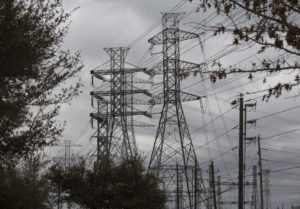 Texas legislators have begun their investigation into the Texas blackouts that plagued the state during record-setting cold in mid-February.
Texas legislators have begun their investigation into the Texas blackouts that plagued the state during record-setting cold in mid-February.
During the first hearing, a joint public hearing of the House State Affairs and Energy Resources committees, the Permian Basin and its crude and natural gas resources were part of the agenda.
“The Permian Basin was a key component of the legislative hearings,” Ben Shepperd, president of the Permian Basin Petroleum Association, told the Reporter-Telegram by email. “Permian Basin natural gas performed admirably. The primary reason some wells were knocked offline was due to the lack of electricity. Once consistent electricity was established, gas flowed to electric generation stations and power plants, producing more electricity which allowed more power to be directed to homes.”
Todd Staples, president of the Texas Oil and Gas Association, listed three reasons natural gas ceased flowing during the frigid weather — a loss of power to wellheads, processing facilities or compressor stations, icy roads that prevented personnel from getting to facilities, and impaired communication.
“Communication is key, especially with the regulatory community and even agencies we don’t normally do business with,” Staples told the Reporter-Telegram by telephone. He said the associations members were proactive with emergency planning, but need better communication with the Public Utility Council and Electric Reliability Council of Texas so those agencies better understand the industry’s needs.
To protect equipment from extreme weather, Staples said some projects utilized methanol injection and others built shelters around their compressors to ensure they would keep running.
“It’s important for operators tell their stories about what happened to them individually,” he said. Natural gas storage and the midstream sector’s ability to move natural gas allowed operators to meet soaring demand for natural gas – when equipment had electricity, he said. He noted that on Feb. 7, before the storm arrived, natural gas fueled 19 percent of the state’s electric generation. At the height of the cold, it fueled over two-thirds of generation.
The industry is doing a thorough analysis from the wellhead to the electric meter to determine all causes of the blackout, Staples said, and legislators will do the same. Judging from the first hearing, he said legislators are doing a thorough job looking at every aspect of the event.
“There are great expectations from the legislators for each industry sector to thoroughly analyze their operations and the impact from the storm and take steps to ensure there’s no loss of power,” he said.
There also needs to be a recognition of the role oil and gas plays in power generation and that there are always ways to improve and do better, he said.
“The public should know operators have every incentive to prioritize safety and storm preparedness,” Staples said.
Source: https://www.mrt.com/business/oil/article/Industry-associations-join-investigation-into-15998510.php

